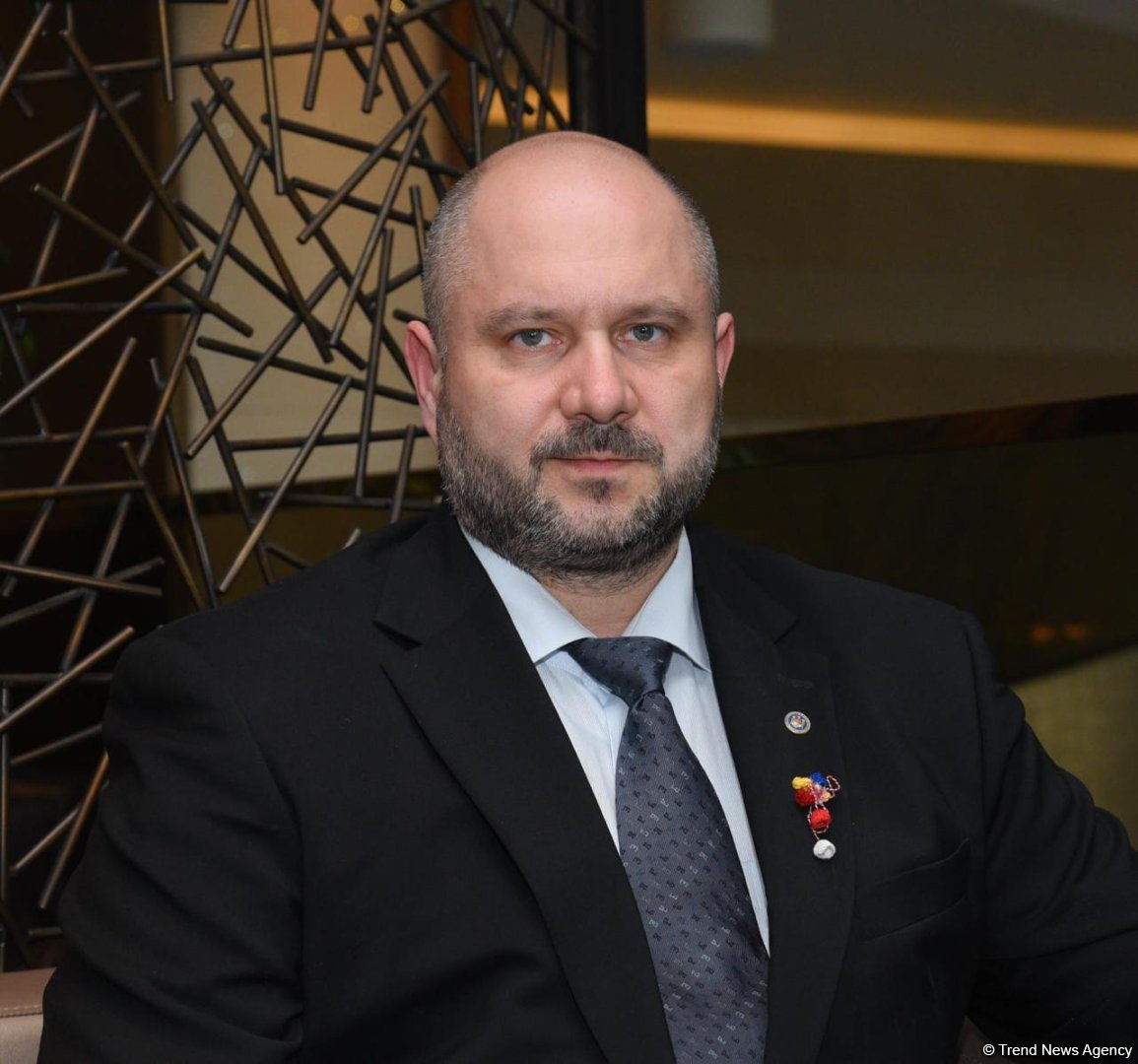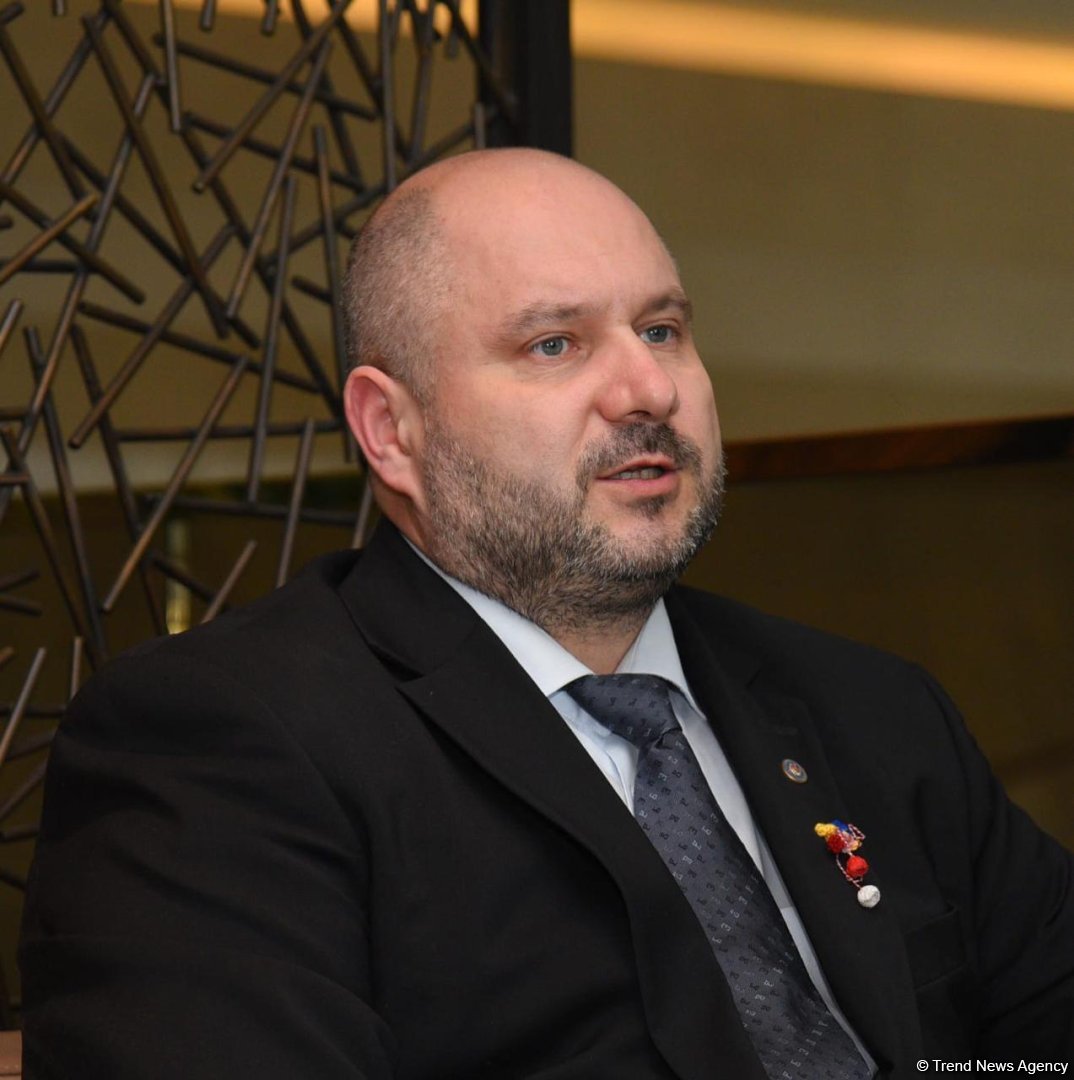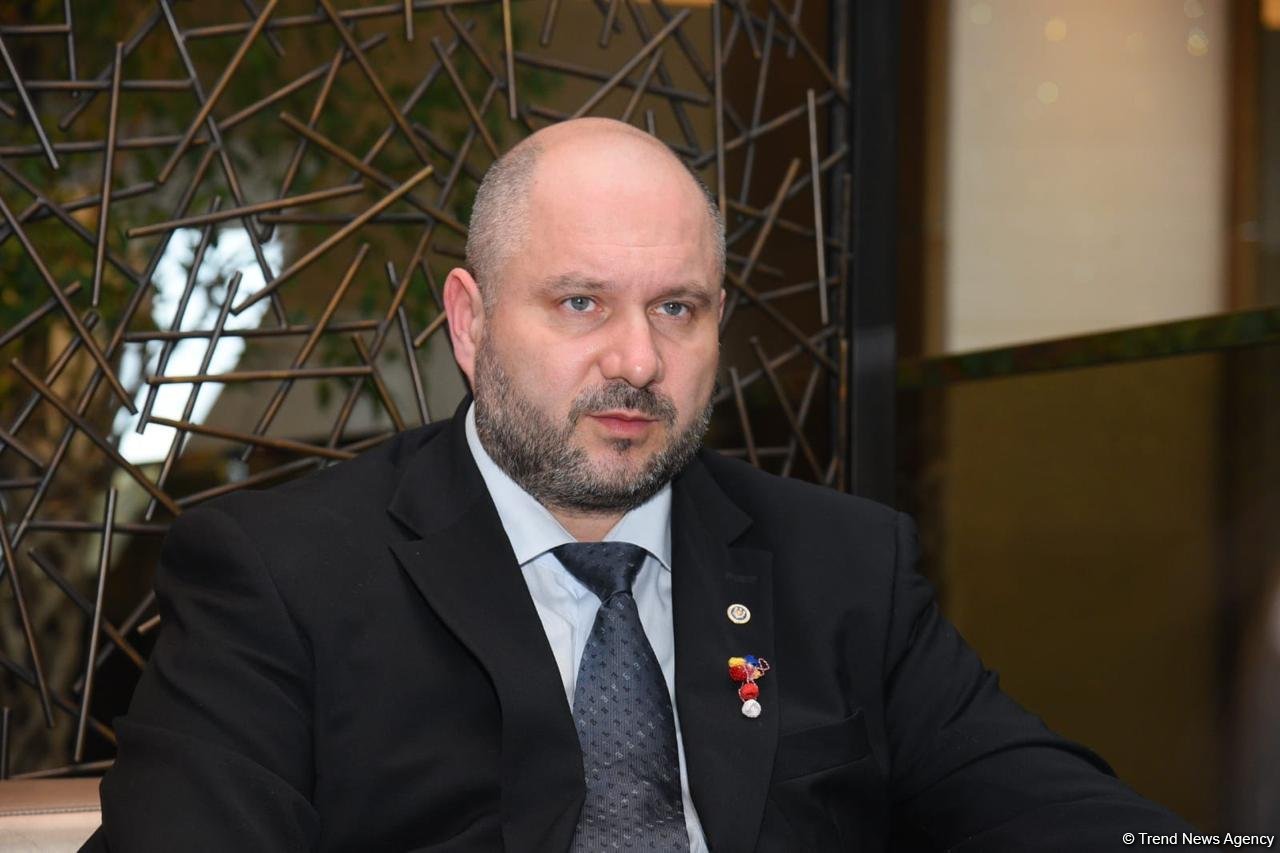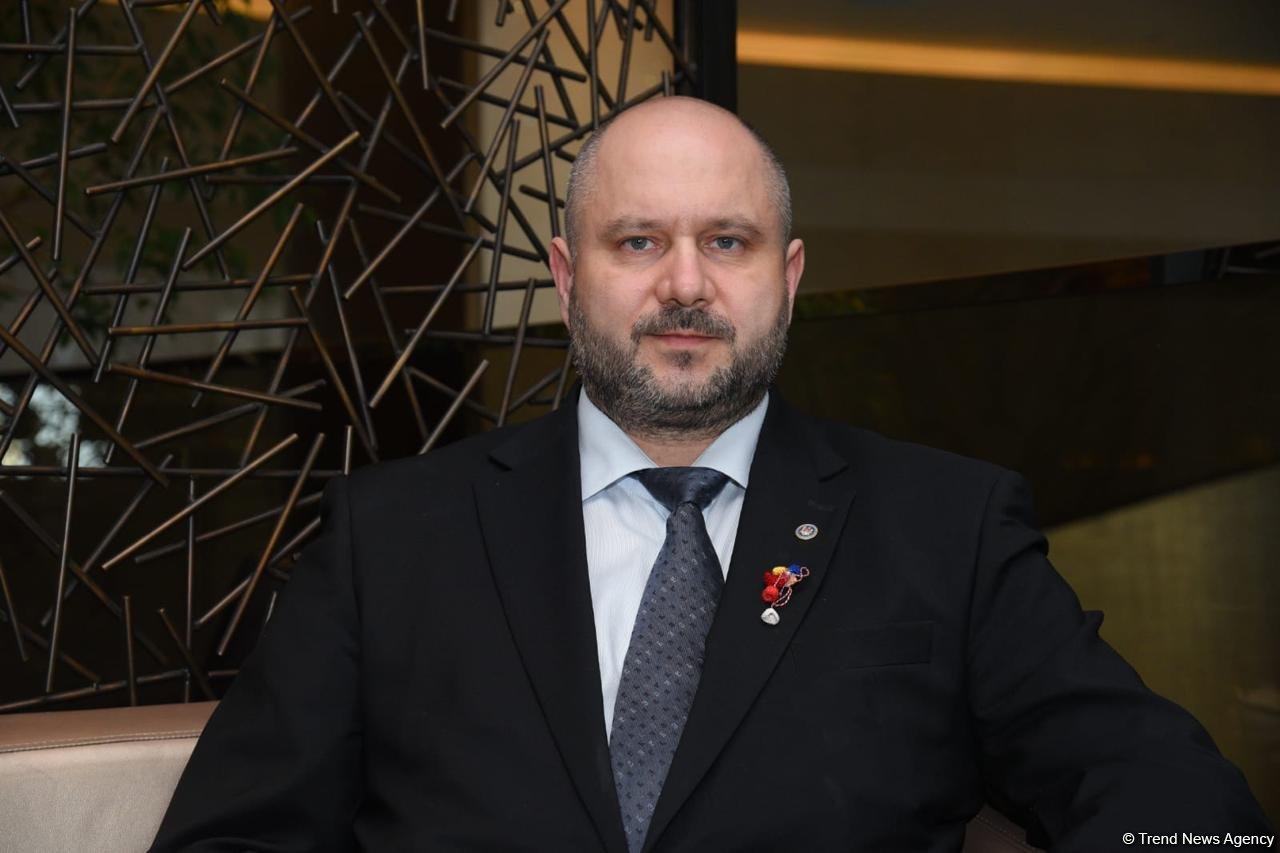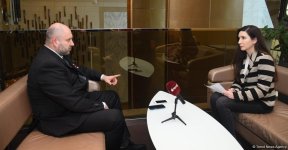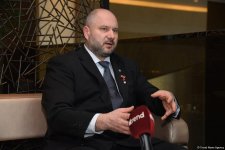BAKU, Azerbaijan, March 5. Moldova seeks longer-term relations with Azerbaijan in the energy sector, Victor Parlicov, energy minister of Moldova, said in an exclusive interview with Trend, sharing takeaways from the 10th meeting of the Southern Gas Corridor Advisory Council’s meeting held in Baku March 1.
"It's encouraging that discussions on green energy were included in the meeting's agenda. We aim to transition from mere transactional engagements to forging enduring partnerships with Azerbaijan. Given the expertise of Azerbaijan’s state oil company SOCAR in fertilizer production, there's potential for collaboration in this sector. With Romania and Bulgaria being significant markets for fertilizers, it would be strategic to establish production facilities closer to these markets. Moldova's proximity to Ukraine, another major market, adds to the appeal. Despite Ukraine's previous substantial fertilizer production, uncertainties arising from the war raise questions about its future output. Therefore, we're keen on partnering with SOCAR or its affiliates to initiate fertilizer production in Moldova. As an agricultural nation, Moldova not only utilizes these products domestically but also serves as a pivotal logistics hub for exporting to EU countries and Ukraine," he stated.
"We are exploring avenues for establishing longer-term relations and fostering a sustained investment presence of Azerbaijan in Moldova, and vice versa. During discussions with SOCAR representatives, as well as officials from the ministries of energy and economy, the prospect of investing in electricity production in Moldova to enhance the electrical system's balancing capacity was deliberated upon,” noted the minister.
Parlicov went on to add that Moldova is eager to attract longer-term investments from Azerbaijan.
"Understanding why projects of this nature have remained unrealized in Moldova until now is crucial. Historically, Moldova was entirely reliant on a single supplier, leading to a vulnerability where energy prices were contingent upon political relations with Russia. This dependency posed a significant deterrent for major investors, who prioritize stability in energy supply and pricing. It's only with recent efforts to diversify energy sources and bolster energy security that the landscape has shifted. Now, with diversified energy supplies and improved security measures in place, the feasibility of such projects has become a pertinent topic of discussion," Parlicov noted.
Green agenda
Parlicov highlighted Azerbaijan's commitment to embracing the green agenda despite its abundance of traditional energy resources.
"Azerbaijan's endeavors, such as the project to lay a cable under the Black Sea for supplying green energy to Europe and domestic initiatives for renewable energy production, make it possible to create new energy connections between Europe and the Caspian region," he stated.
Parlicov explained that while Moldova may not be directly connected to such projects due to geographical constraints, it stands to benefit indirectly through the Romanian market.
"Given our geographic constraints, establishing a direct connection between Moldova and such a project poses challenges. However, we anticipate indirect benefits through our integration into the European energy market via Romania. Moldova is actively enhancing its energy infrastructure by developing robust connection lines with the Romanian energy system. We anticipate that within 5-6 years, Moldova will seamlessly integrate into the European energy market, aligning closely with Romania. Consequently, if the cable reaches the Romanian market, Moldovan consumers will have access to the same energy sources. While the direct passage of the cable through Moldova may not be economically or logistically necessary, our strong interest and support for the project stem from our broader goal of integrating into the EU market," the minister noted.
Parlicov highlighted the disparity between Moldova's energy system and that of Azerbaijan, noting that Moldova's system is smaller in scale.
"Consequently, the scale of projects in Moldova is also significantly smaller. However, the mechanisms we employ to attract investments are similar, and we are keen on exchanging experiences with Azerbaijan in this regard. Moldova conducts auctions for approximately 60 megawatts of solar energy and slightly over 100 megawatts of wind energy. The auction model ensures that the company offering the best price for consumers secures a 15-year contract to sell energy at the agreed price. This mechanism not only guarantees certain revenues but also fosters competitiveness, ensuring the best possible prices for our consumers,” said the minister.
Parlicov emphasized Moldova's transition from dependence on a single supplier, stating, "It was fundamentally important for us to break free from reliance on a sole supplier."
He affirmed Moldova's readiness to procure gas on commercial terms, marking a significant shift in their energy procurement strategy.
The future of the Southern Gas Corridor
"When the concept of the Southern Gas Corridor was conceived, few anticipated its swift implementation or its transformation into a critical artery safeguarding gas supplies to Europe. However, with the onset of the war in Ukraine, this corridor assumed paramount importance. The geopolitics of energy and gas supply has reshaped. The Southern Gas Corridor, complemented by infrastructure developments in the Balkans, has played a pivotal role in rapidly diversifying Europe's sources of energy supply," noted Moldova’s energy minister.
He emphasized that without the Southern Gas Corridor, the Vertical Gas Corridor, the rapid reduction of dependence on Gazprom from 100 percent to nearly zero in the part of the country that Moldova controls would have been impossible.
"Despite the Transnistrian region continuing to receive gas from Gazprom, the rest of Moldova has successfully met its gas requirements by procuring from various European suppliers. In a notable achievement last year, we demonstrated that purchasing gas from the European market was not only feasible but also more cost-effective than the pricing formula stipulated in our contract with Gazprom.
The Southern Gas Corridor stands as a completed project, significantly bolstering the security of energy supplies to Europe. As we assess the future, it's imperative to consider the next steps. With the potential for other countries in the Caspian region to join this corridor, we have an opportunity to broaden its scope, facilitating enhanced connections between Europe and Central Asia. Notably, the entire Caspian region emerges not only as a reservoir of fossil fuels but also as a potential hub for green energy," he concluded.
Follow the author on X: @Lyaman_Zeyn









